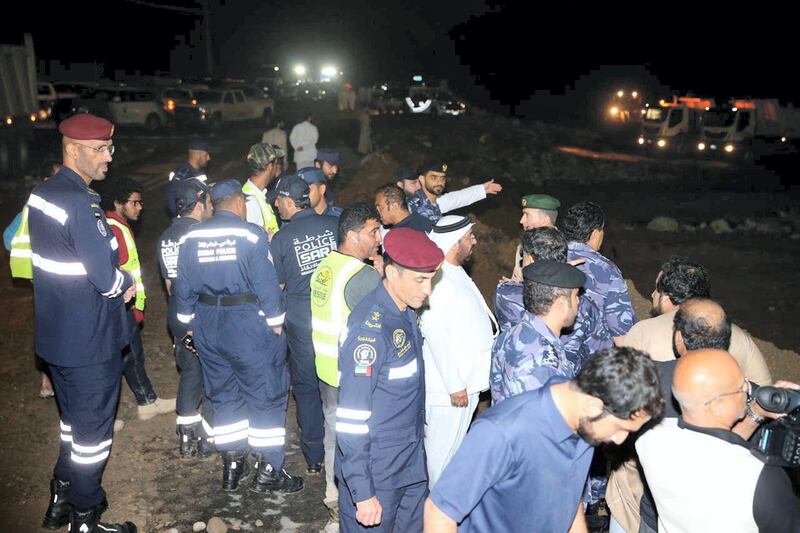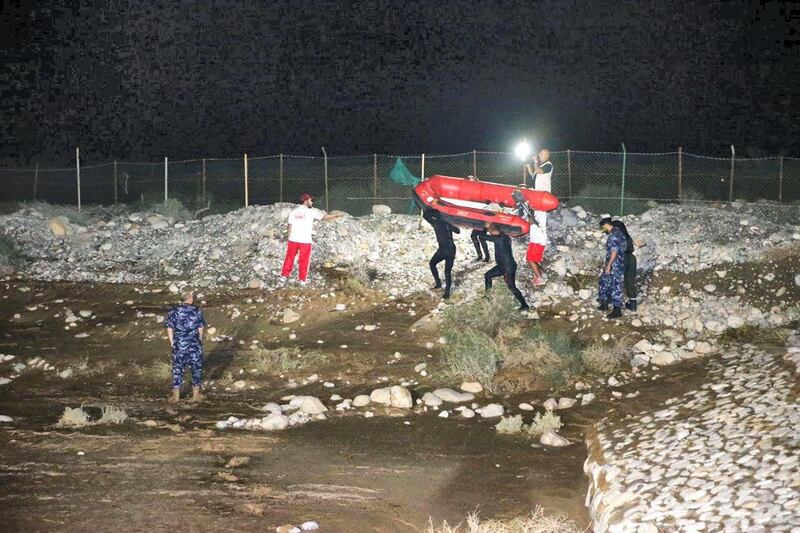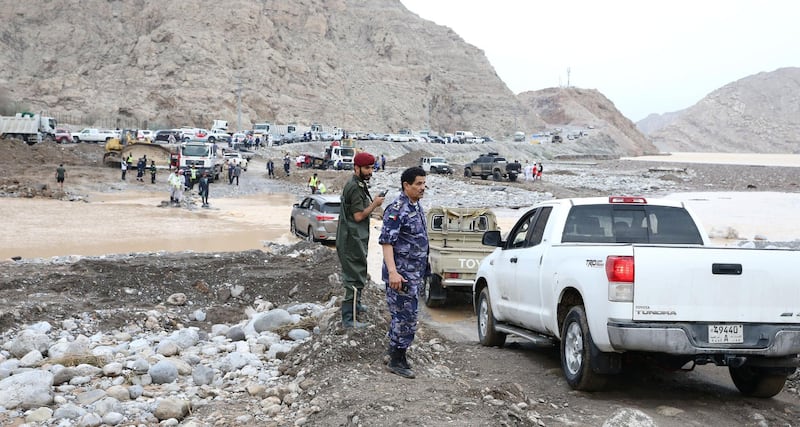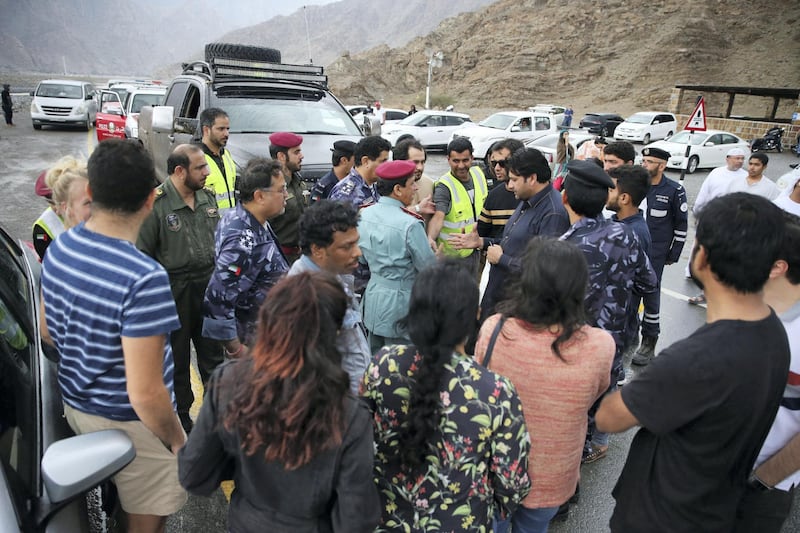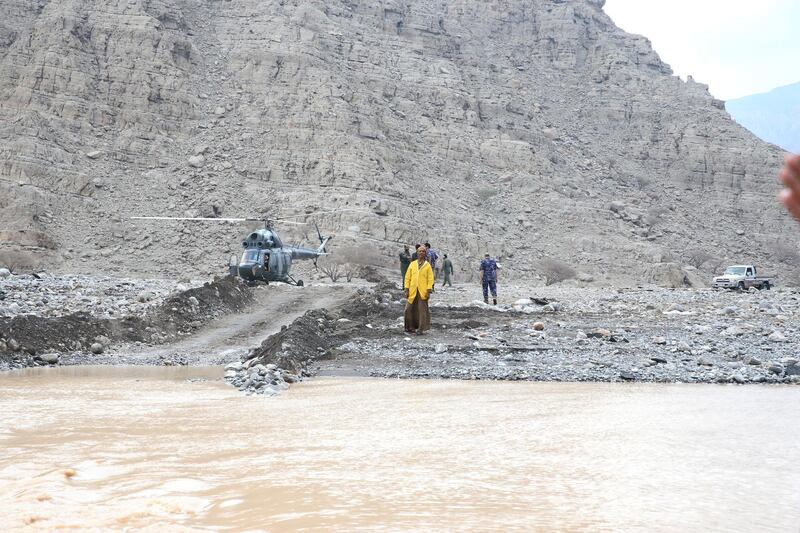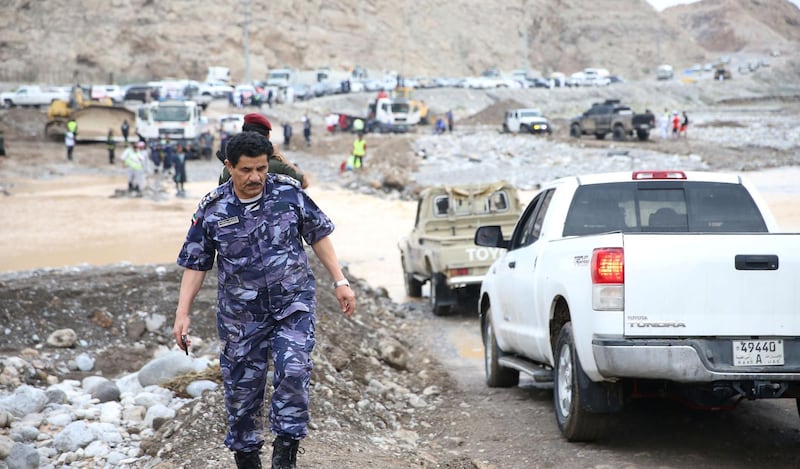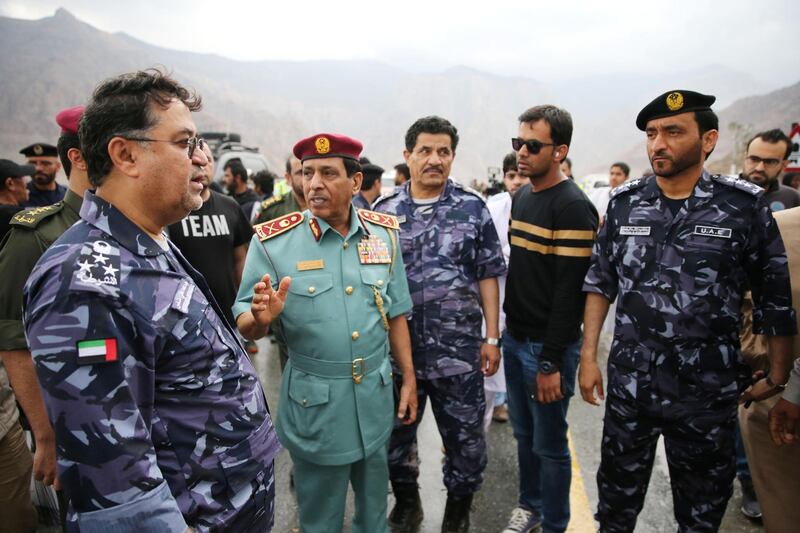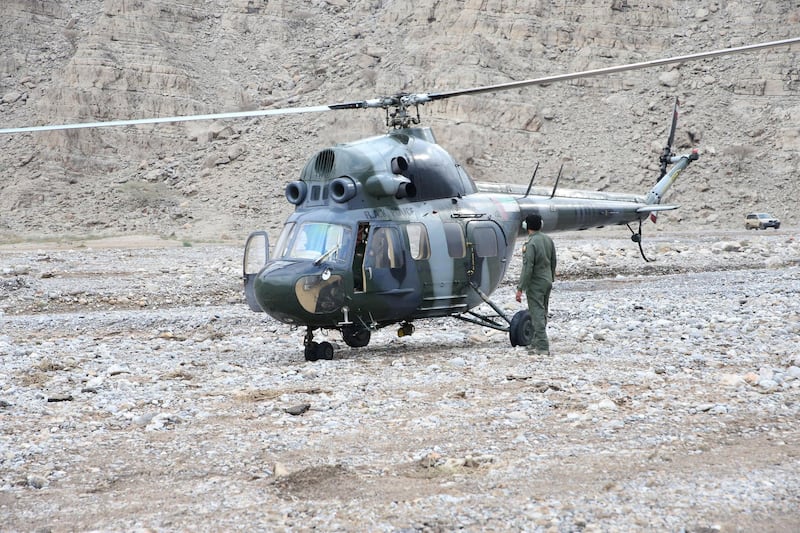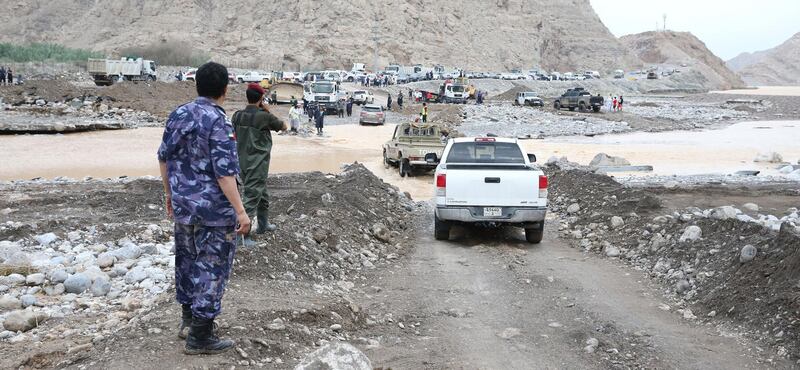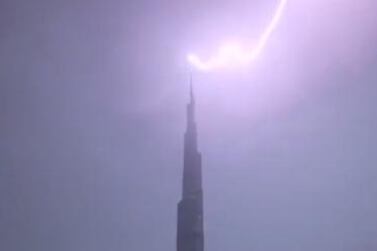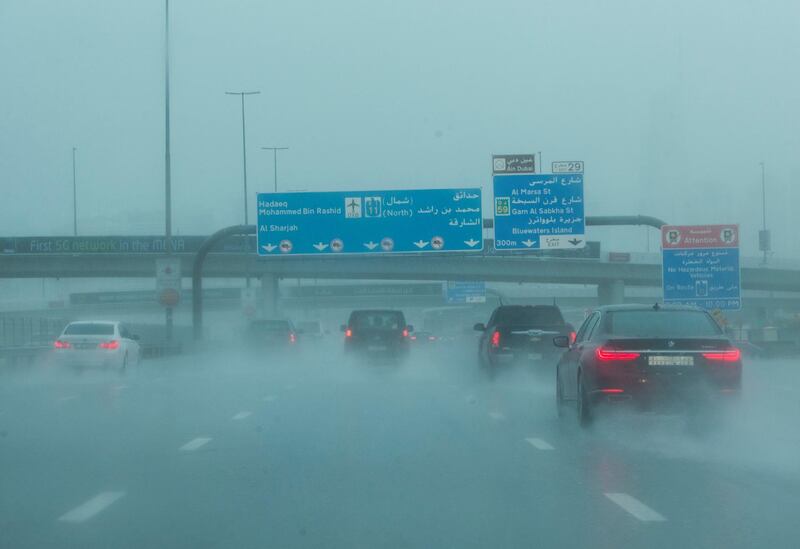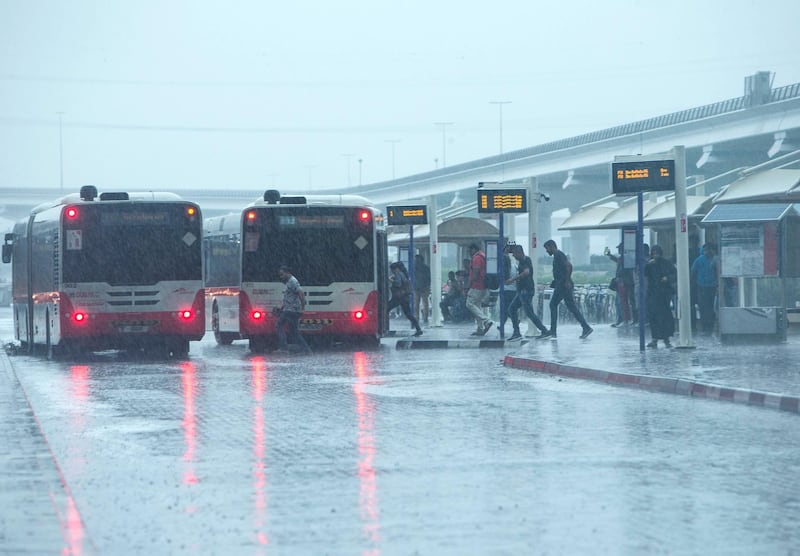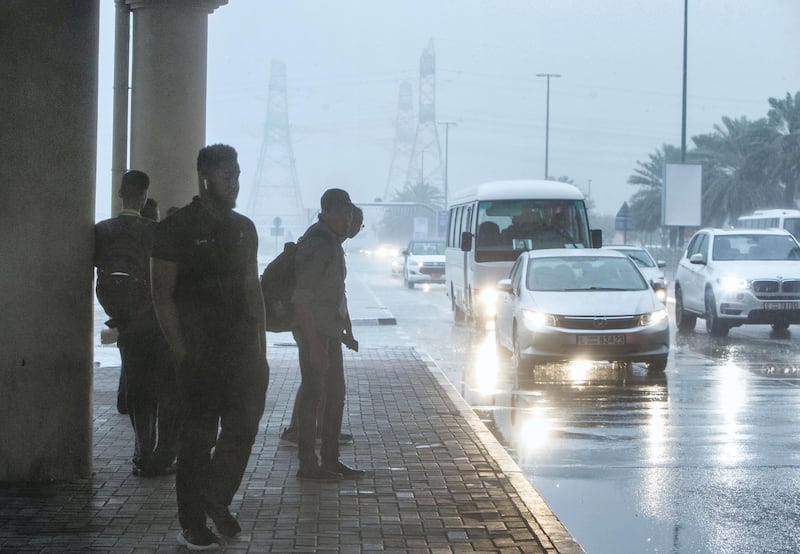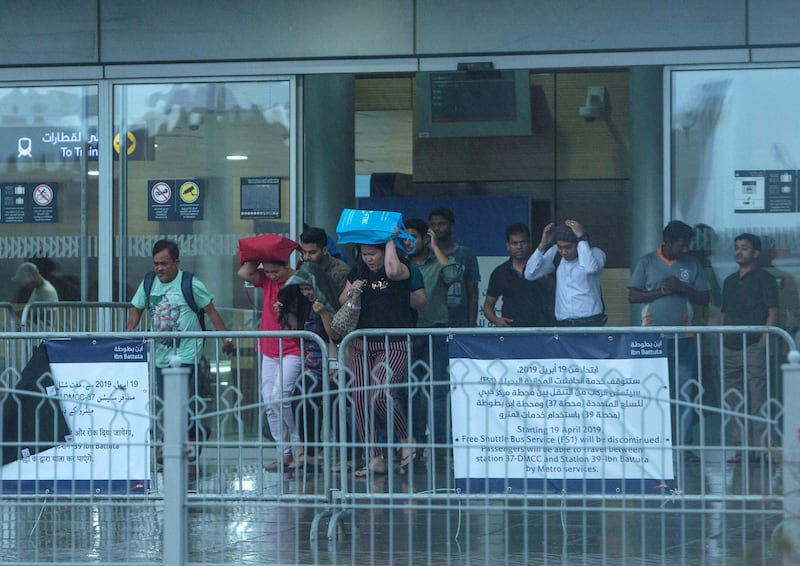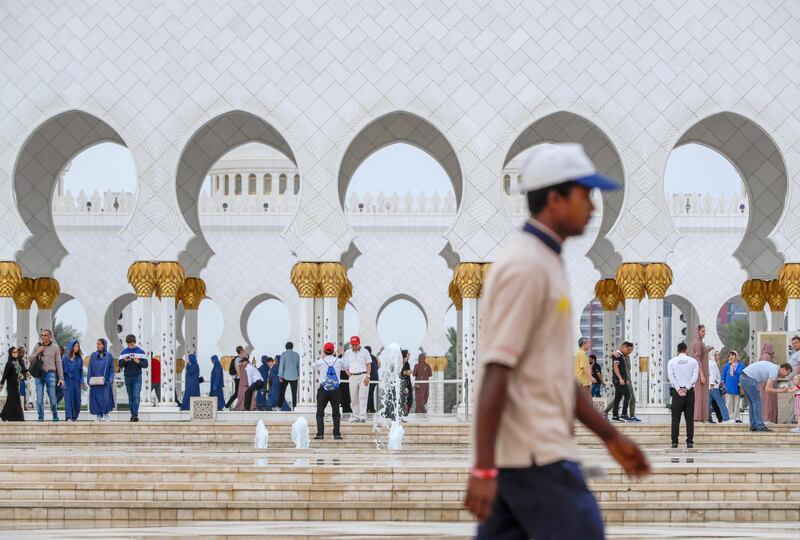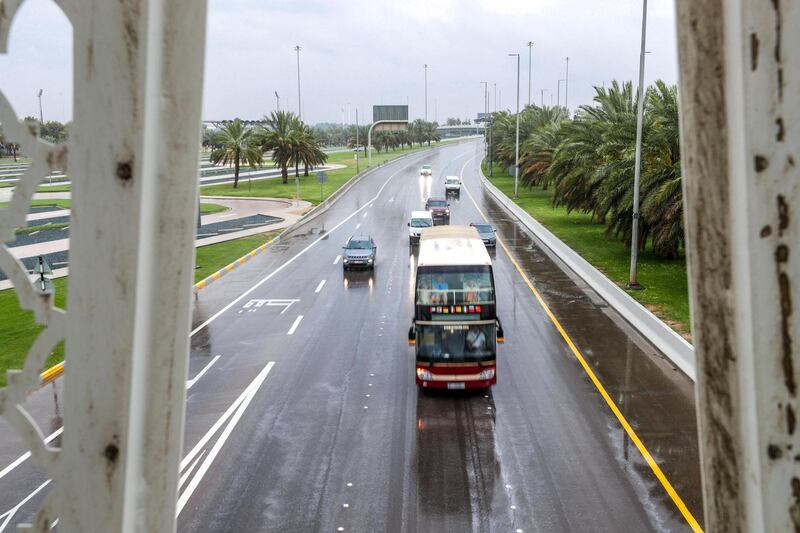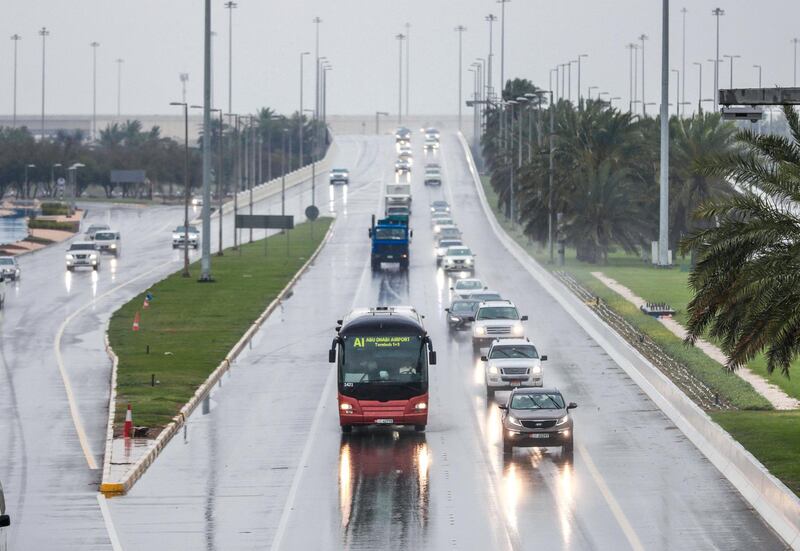As many as 400 people were rescued from the UAE's tallest mountain in Ras Al Khaimah after flooding left them stranded over Saturday night.
In the past week, parts of the emirate have been hit by the equivalent of one and a half times the average annual rainfall for the whole of the UAE.
An RAK Police helicopter picked up about 170 people from Jebel Jais, 20 at a time, and flew them to safety.
Heavy rain blocked roads across the Northern Emirates on Saturday and Sunday. Many people were stranded with their cars overnight.
Police urged residents and visitors to avoid the Jebel Jais area until the flooding has cleared.
Rain lashed the whole country over the weekend, causing localised flooding, while lightning was seen striking the tip of Burj Khalifa on Saturday.
More than 154 millimetres of rain fell over Wadi Shah, a valley south of Jebel Jais, between Tuesday and Sunday, the National Centre of Meteorology said.
The annual average rainfall in the UAE is about 100mm, forecasters have said.
In Dubai, the municipality recorded 25.6mm of rain at the Palm Jumeirah station at the weekend – the highest amount in the emirate.
Talib Julfar, chief executive of infrastructure services at Dubai Municipality’s Ghaith team, said they began preparing for the deluge of rain from Friday evening to ensure puddles on roads would be cleared as quickly as possible.
“We made sure that the working teams were ready at all locations and equipped with all necessary tools,” Mr Julfar said.
He said the team used meteorological maps that showed the areas where rain-bearing clouds were expected to form.
Despite preparations, more than 200 traffic accidents were reported in Dubai between Saturday and Sunday morning.
Col Mohammed Al Muhairi from the police Command Centre said police received more than 5,781 emergency calls from 6am on Saturday until 7am on Sunday, but no serious injuries or accidents were reported.
"People should follow safety instructions and regulation to avoid any accidents," Col Al Muhairi said.
Police also increased their patrols at the weekend, particularly in more remote desert areas, to respond to incidents faster.
In Sharjah, the municipality used 226 tankers to pump water from the emirate’s flooding streets.
In RAK, the weather was a mixed blessing for residents. Farmers woke early to find their palm orchards flooded with nutrient-rich mountain water, a sign of a prosperous summer harvest.
But in the old town, traders who had started setting up outdoor stalls for Hag Al Laila, a children’s festival preceding Ramadan, struggled to keep tarpaulins and boxes of crisps and sweets from blowing away in the storm.
Residents also had to contend with heavily water-logged streets, as flood waters showed little sign of clearing.
Martin Nsiege rolled up his jeans and cycled slowly across the flooded streets of Al Nakheel market in RAK.
“Today is a very wonderful day,” said Mr Nsiege, an RAK resident from Nigeria. “Have you seen this kind of thing before? This is my first time in three years seeing rain like this in this country.”
Not everyone was so impressed. For residents without vehicles, or even a bicycle, navigating the city’s streets was nearly impossible.
“This is not normal,” said Vikram Kumar, 35, an RAK resident who stood on a curb in the wind waiting for his friend to collect him.
“I cannot even find a taxi. I would rather not go to the office today. This year we are seeing different weather compared to last year.”
Maj Gen Ali Al Nuaimi, head of RAK Police, said all possible support had been extended to people trapped in the floods.
Food and medical treatment was being provided "to flood-stricken people who have been advised not to leave their location" until help comes, he said.
Gen Al Nuaimi said many homes had been damaged by the torrential rain.
In an Instagram post, RAK Police advised drivers to be cautious, saying accidents would happen unless care was taken on the roads.
"We also ask drivers to keep double safe distance between vehicles on the roads and avoid overtaking," Gen Al Nuaimi said.
"As well as driving at lower speeds, avoid going to mountainous and valley areas where there could be flooding. And avoid going to the sea."
Conditions are expected to improve throughout the week, although heavy showers could be seen on the satellite image over the Northern Emirates.
